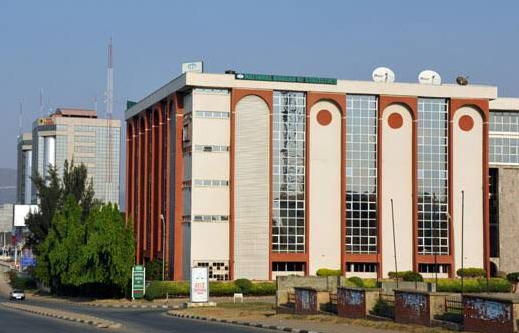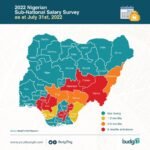Anambra, Abia and 32 other States got US$0.00 capital importation in the second quarter of 2024, according to Nigeria Capital Importation Q2 2024 report released by the Nigerian Bureau of Statistics (NBS).
Also read; Task force raids fake wine factory in Anambra State
All 35 states also received US$0.00 capital importation in the first quarter for the year, bringing their total capital importation in 2024 to US$0.00.
Capital importation refers to the bringing in of capital into Nigeria, which could be in cash or consideration other than cash, such as importation of equipment or raw materials.
In Q2 2024, total capital importation into Nigeria stood at US$2,604.50 million, higher than US$1,030.21 million recorded in Q2 2023, indicating an increase of 152.81%. In comparison to the preceding quarter, capital importation declined by 22.85% from US$3,376.01 million in Q1 2024.
Out of the three states that recorded capital importation during the quarter, Lagos state remained the top destination with US$1,367.84 million, accounting for 52.52% of the total capital imported. Abuja (FCT) followed with US$1,236.64 million (47.48%), and Ekiti state with US$0.0085 million.
In Q1 2024, the three states; Lagos, Abuja (FCT) and Ekiti State were also the only ones to receive capital importation in Nigeria, with US$2,82.41 million, US$593.58 million and US$0.0127 million.
Investogist reported earlier in the month that thirty–two State Governments in Nigeria budgeted ₦69.71 billion for travels in the first six month of 2024.
Ekiti and Lagos State Governments, the only two that received capital importation in Q1 and Q2, 2024 budgeted ₦3.75bn and ₦945.62mn respectively.
While the Government of Anambra state budget ₦316.42mn for travel in the first half of the year, that of Abia State budgeted ₦280.02mn.
Oyo State had the highest travel budget with ₦11.5bn, while Enugu State had the least with ₦28.46mn.
The Nigeria Capital Importation Q2 2024 report shows that Portfolio Investment ranked top with US$1,404.70 million, accounting for 53.93%, followed by Other In vestment with US$1,169.97 million, accounting for 44.92%. Foreign Direct Investment recorded the least with US$29.83 million (1.15%) of total capital importation in Q2 2024.
The Banking sector recorded the highest inflow with US$1,123.95 million, representing 43.15% of total capital imported in Q2 2024, followed by the Production/Manufacturing sector, valued at US$624.71 million (23.99%), and Trading sector with US$569.22 million (21.86%).
Capital Importation during the reference period originated largely from the United Kingdom with US$1,120.15 million, showing 43.01% of the total capital imported. This was followed by the Nether lands with US$577.82 million (22.19%) and the Republic of South Africa with US$255.98 million (9.83%).
Citibank Nigeria Limited received the highest capital importation into Nigeria in Q2 2024 with US$818.46 million (31.43%), followed by Standard Chartered Bank Nigeria Limited with US$654.79 mil lion (25.14%) and Rand Merchant Bank Plc with US$488.59 (18.76%).
Under Nigerian law, it is very important that every foreigner investing in a local business in Nigeria is required to procure a Certificate of Capital Importation (“CCI”) on the inflow of foreign currency or raw materials or equipment imported into Nigeria. A Certificate of Capital Importation (“CCI”) is a certificate issued by a Nigerian bank confirming an inflow of foreign capital either in the form of cash (loan or equity) or goods.
The primary purpose of the CCI is to guarantee access to the official foreign exchange market for repatriations of capital and returns on investment, which include dividends, interest, and capital on divestments.
Nnamdi Maduakor is a Writer, Investor and Entrepreneur





















































